But the pace is still late-winter slow at LWR. I’m actually wondering if part of the slowness may be related to Highly Pathogenic Avian Influenza (HPAI), which is now apparently an issue in Georgia. Per information sheets recently provided by the Georgia DNR, HPAI is highly transmissible from bird to bird, both wild and domestic, and in some domestic species such as chickens, it can wipe out an entire flock. It’s become a disease of concern among raptors, as well. For those who may not be aware of the disease, here are some of the pertinent points from the DNR info sheet:
- Some wild birds infected with HPAI may not appear sick.
- HPAI occurs naturally in migratory waterfowl, wild aquatic birds (gulls, shorebirds), raptors, and scavengers; however, all bird species should be considered susceptible.
- Clinical signs can vary widely. Some birds may show no symptoms, while others may exhibit signs such as sneezing, coughing, watery eyes, nasal discharge, twisted neck, swollen sinuses, along with decreased feed and water intake, dehydration, depression, huddling, diarrhea, lethargy and death. However, many diseases can cause these same symptoms, therefore HPAI cannot be diagnosed based just on clinical signs.
- HPAI viruses are highly contagious and usually cause severe illness in chickens and turkeys; few birds within an infected flock will survive. It is therefore critical to avoid exposure to domestic birds.
- AI viruses are shed in the feces and respiratory secretions of birds. The fecal-oral and respiratory transmission routes can rapidly spread the virus throughout a poultry flock.
- Clothes, shoes, shared equipment and vehicles can pick up the virus from the environment, therefore these are also transmission routes.
In other words, this should prove to be an...interesting year...I’ve already verified with Auburn that they will still accept raptors from Georgia should they need their specialized care, but that could change if the outbreak gets too widespread and severe.
On to more pleasant topics: The great horned almost-brancher will be moved to a larger box early this week to allow for a low perch; she’s acting like she’s ready to see what those clodhopper feet are capable of.
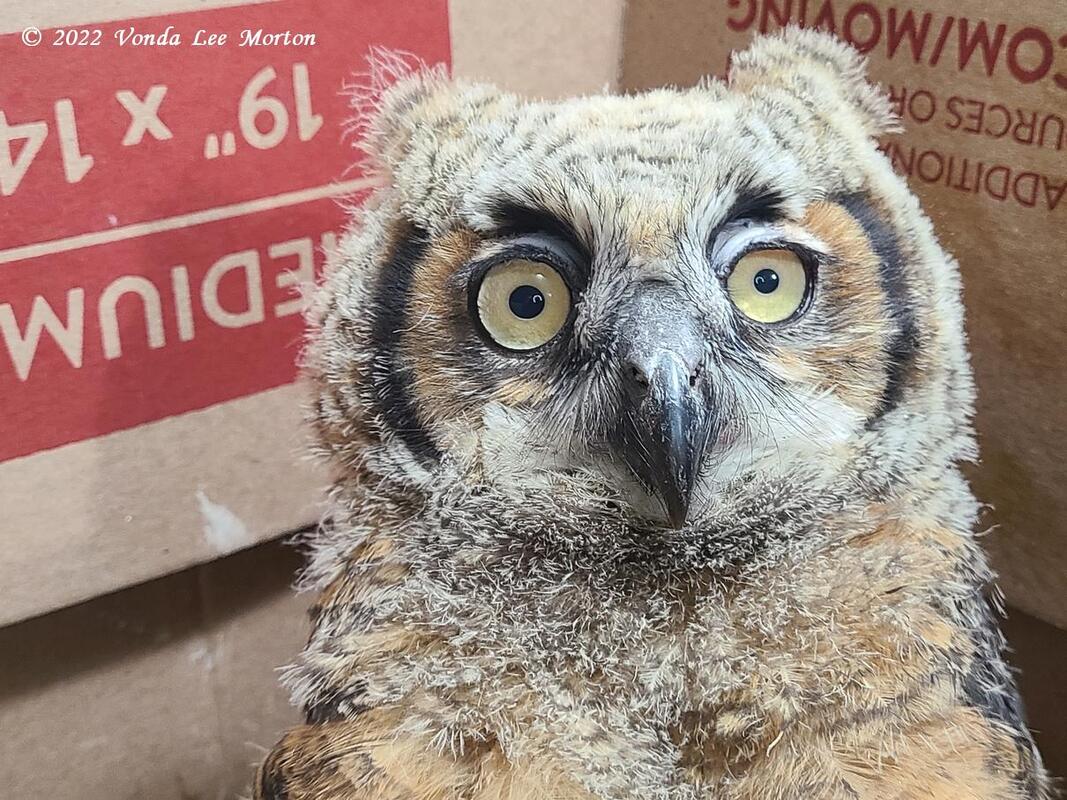
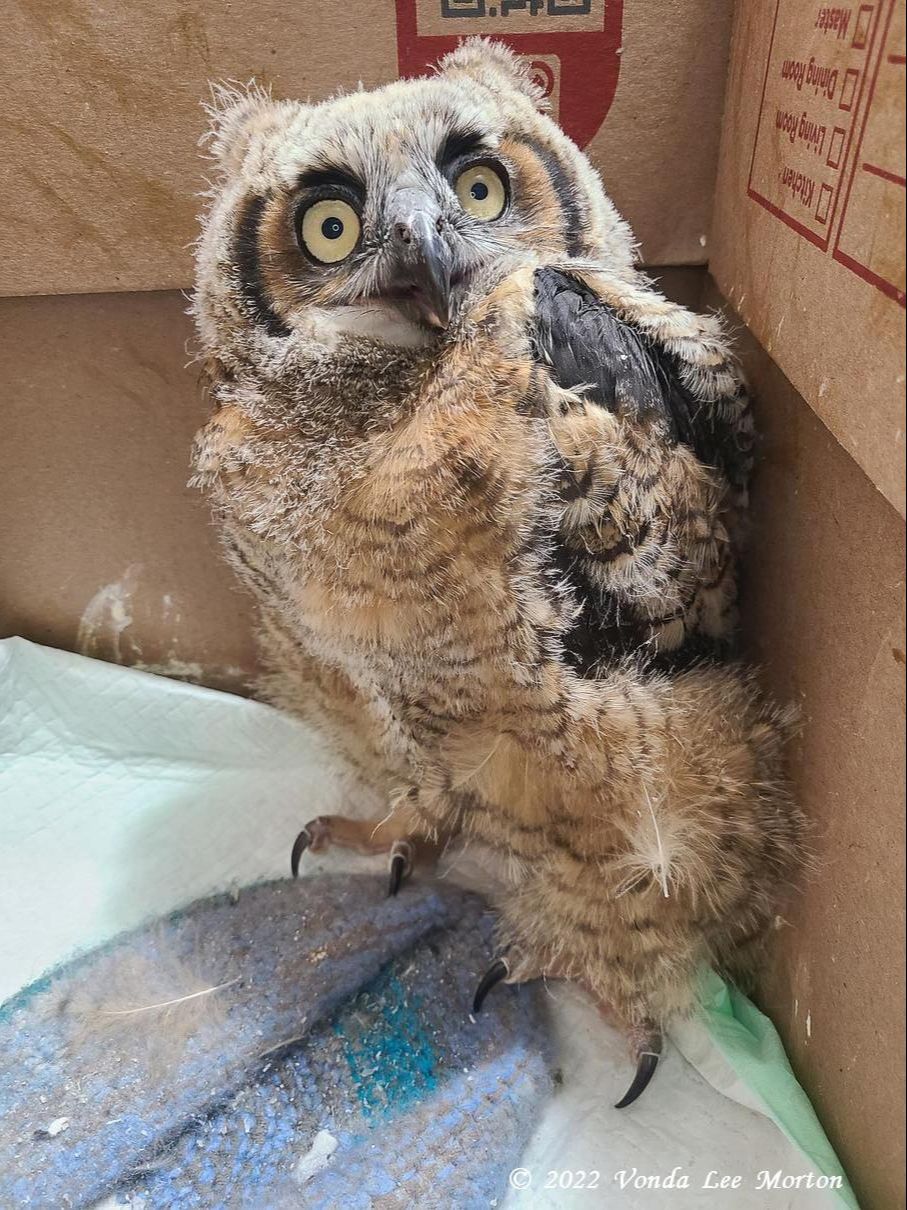
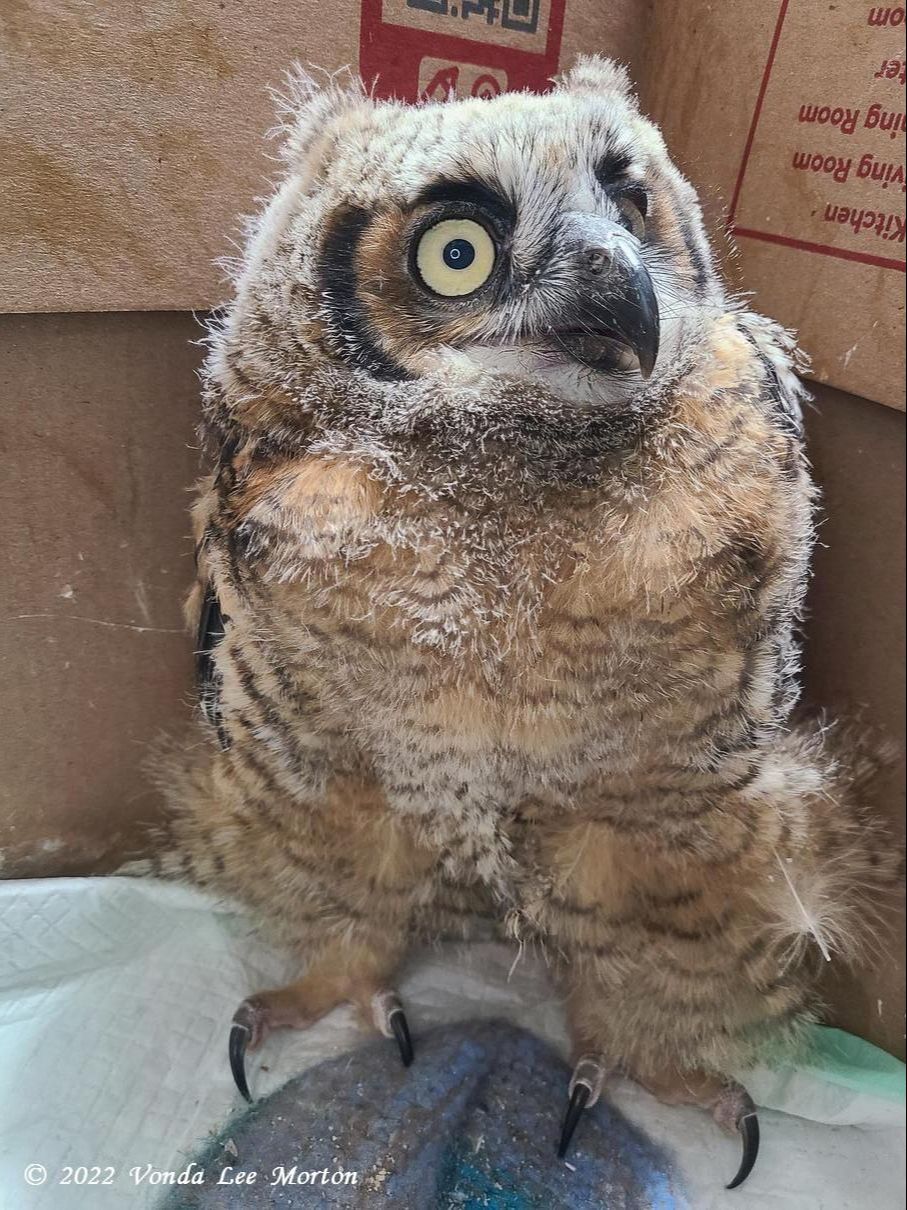
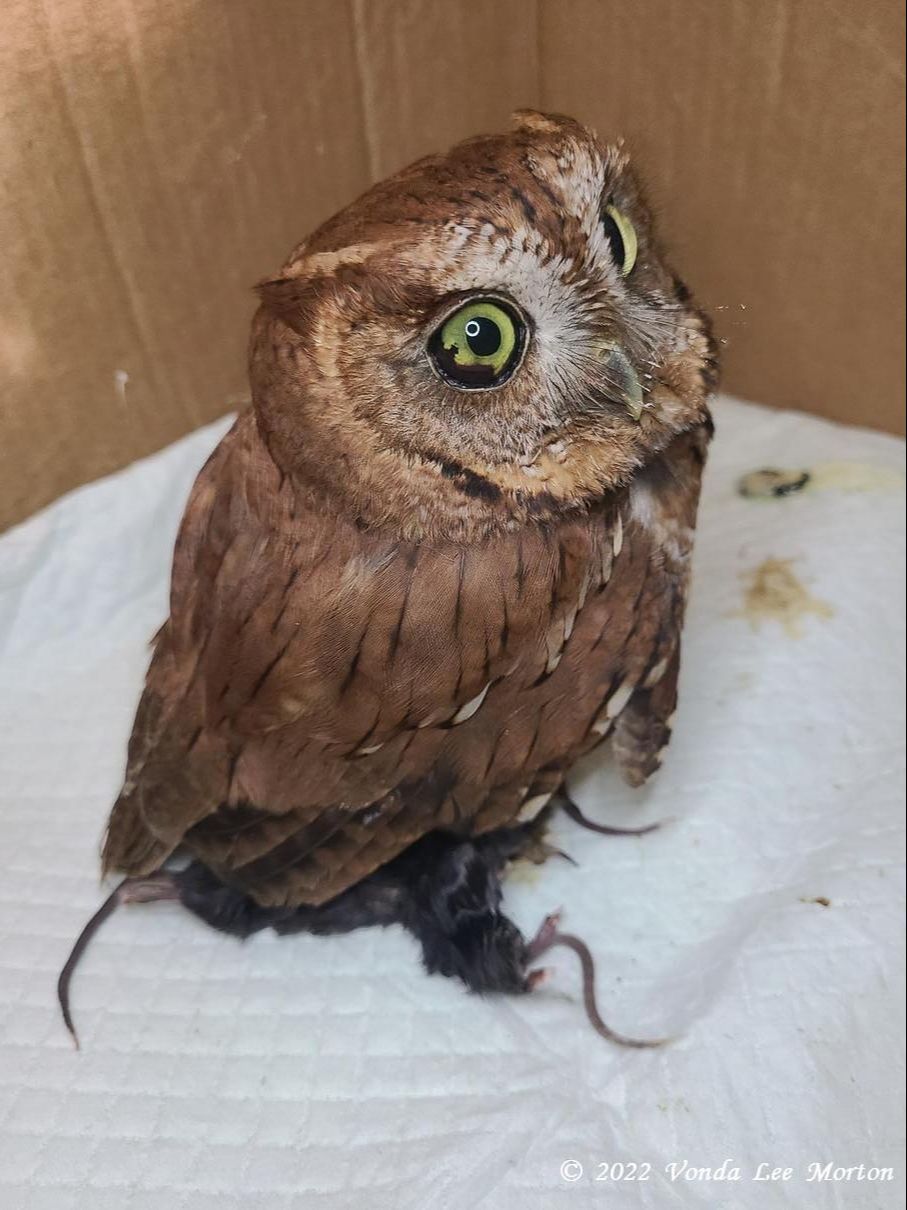
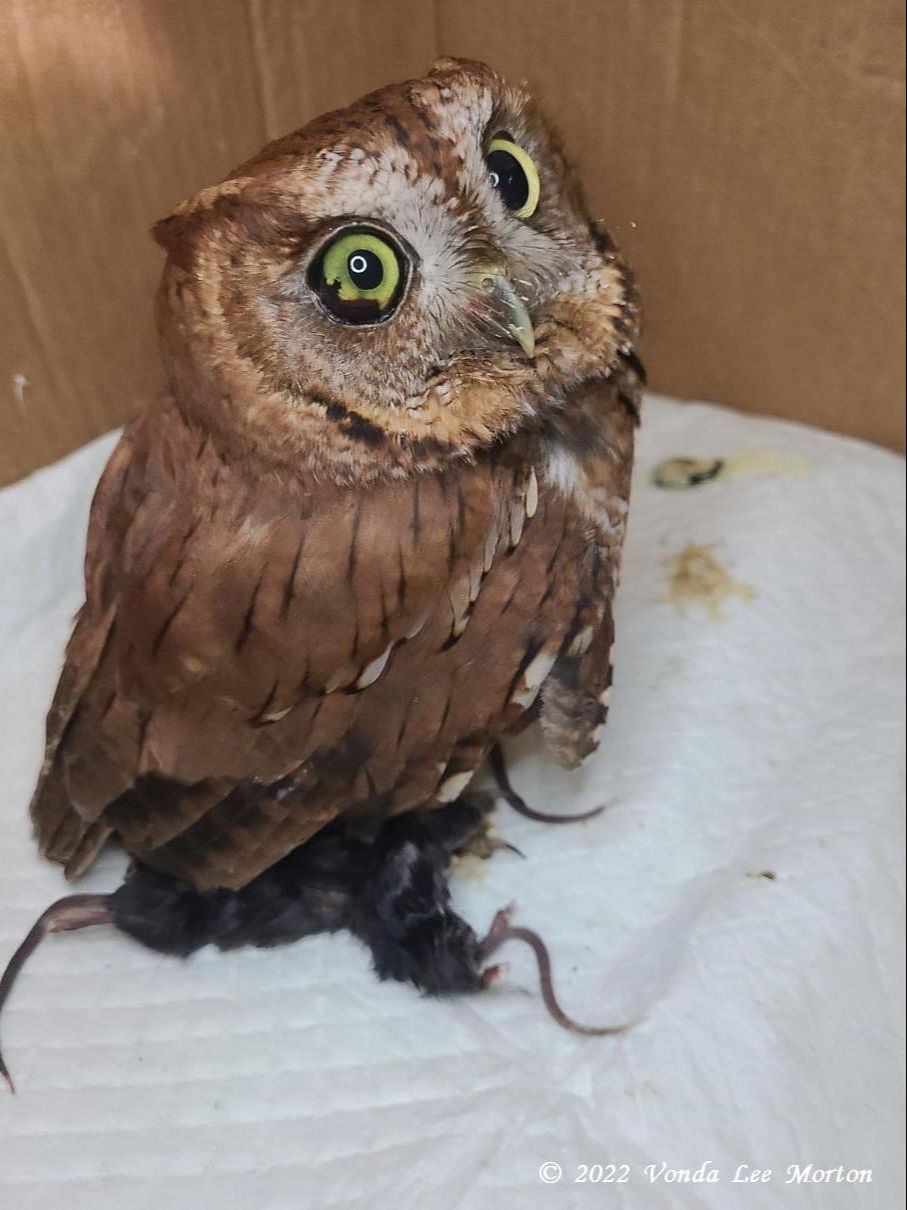
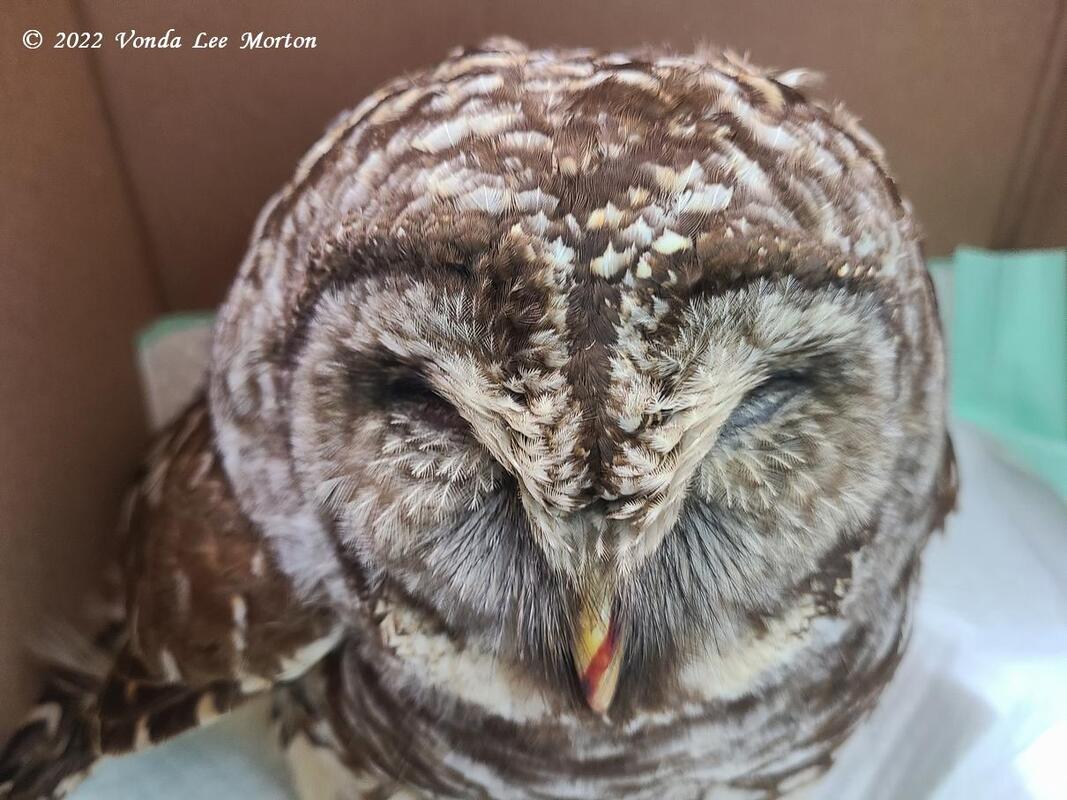
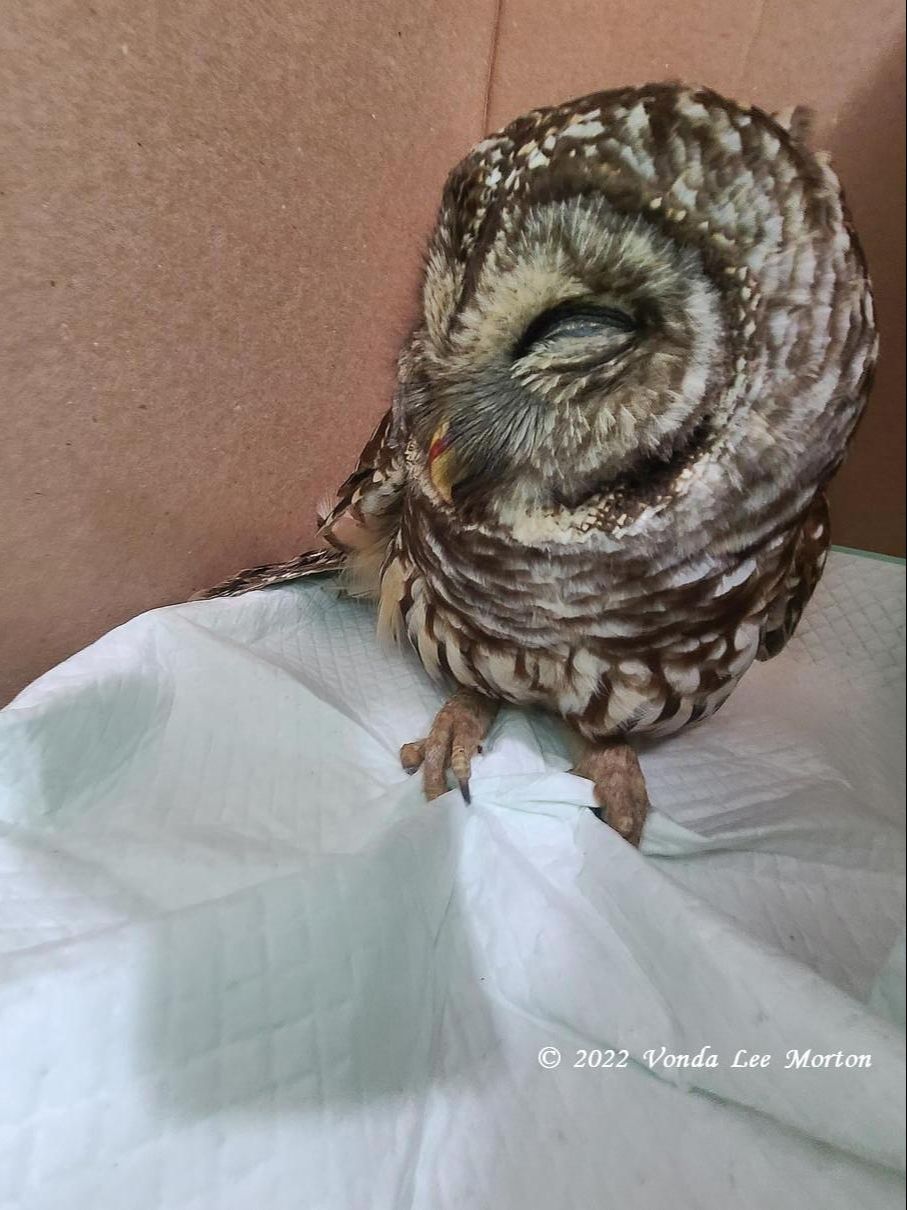
 RSS Feed
RSS Feed
